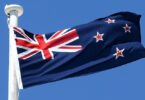The governor of the Central Bank of Nigeria (CBN), Yemi Cardoso, has clarified the notion that the previously restricted 43 items on the CBN list were prohibited from entering the country but were only restricted from FX access at the official market.
Cardoso made this clarification at the 58th Annual Bankers’ Dinner organized by the Chartered Institute of Bankers of Nigeria (CIBN) on Friday in Lagos.
He highlighted that trade policy, particularly the importation and sale of the 43 items, falls squarely under the jurisdiction of fiscal authorities rather than the CBN.
He emphasized the significance of this distinction, stating that it is crucial to clarify that the Central Bank of Nigeria’s choice to remove foreign exchange restrictions on these items was not meant to infringe upon the duties of other government agencies.
TheWitness reported that in June 2015, the Central Bank of Nigeria (CBN) issued a circular containing a list of imported goods and services ineligible for foreign exchange in the country’s currency market.
The original list, comprising 41 items, was later updated to incorporate an additional two items.
However, CBN made an announcement on October 12, 2023, declaring the removal of the ban on issuing foreign exchange for the importation of various items, including rice, vegetable oil, and poultry products.
According to Cardoso, the 43 items placed a lot of pressure on the parallel market, resulting in a widening of the gap between the official market rate and the parallel market rate.
He stated that this widened disparity crunched the FX inflow into the country, thus adversely affecting liquidity in the FX market.
Cardoso said studies had shown that during the period when the 43 items were restricted, there was a 51.0 percent increase in trade evasion by importers accessing the foreign exchange market.
He stated that this led to a decrease in revenue by around $1.4 billion, equivalent to $275 million per year from 2015 to 2019
Cardoso added that revenue from tariffs on goods decreased from a high of approximately $920 million in 2011 to about $250 million in 2017.
The CBN governor therefore reiterated the earlier point raised by the apex bank as part of the rationale for removing the ban. According to him, the removal is meant to boost liquidity in the foreign exchange market.
Earlier in a circular in October, the CBN claimed that the removal of the ban was meant to bolster liquidity in the FX market.
The circular noted,
In addition, Cardoso explained that the benefits of trade gains for the general population were negligible, as the average industry in Nigeria pays 13.7 percent more for its inputs.







